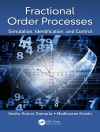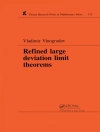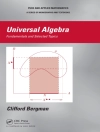Die zunehmende Bedeutung der Statistik hat zur Folge, dass grundlegende Kennt nisse der statistischen Methodenlehre notwendig sind, um gesellschaftliche wie betriebliche Zusammenhänge erkennen und darstellen zu können. In dem vorliegenden Buch werden die wichtigsten statistischen Methoden mit ih ren Einsatzmöglichkeiten in der betrieblichen Praxis dargestellt. Dabei wird das Ziel verfolgt, dem Leser durch eine praxis- und entscheidungsorientierte Darstel lungsweise die Anwendungsmöglichkeiten der statistischen Methoden nahezu bringen. Übersichtlich strukturierte Schemata und Zusammenfassungen geben da bei eine Hilfestellung. In jedem Kapitel wird der Stoff anhand von betrieblichen Beispielen erläutert und vertieft. Weitere Fragen und Aufgaben mit Musterlösungen machen es möglich, den Stoff selbst zu erarbeiten. Das vorliegende Buch ist besonders gedacht für den Unterricht an Wirtschafts fachschulen, Wirtschaftsgymnasien, Leistungskursen Wirtschaft an Gymnasien, Fachoberschulen und Fachakademien. Die 6. Auflage wurde kritisch durchgesehen und aktualisiert. Heinrich Holland Kurt Schambacher Inhaltsverzeichnis 1 Grundlagen der Statistik in der Betriebswirtschaft . . . . . . . . . . . . . . . . . . . . . . . . . . . . . . . . . . . . . . . . . . . . . . . . . . . . . 1. 1 Bedeutung der Statistik . . . . . . . . . . . . . . . . . . . . . . . . . . . . . . . . . . . . . . . . . . . . . . . . . . . . . . . . . . . . . . . . . . . . . . . . . . . . . . . . . . . . . . . . . . . . . . . . . . . . . 1. 2 Statistische Methodenlehre . . . . . . . . . . . . . . . . . . . . . . . . . . . . . . . . . . . . . . . . . . . . . . . . . . . . . . . . . . . . . . . . . . . . . . . . . . . . . . . . . . . . . . . . . . . . . . . . 3 1. 3 Betriebliche Statistik . . . . .. . . . . . . . . . . . . . . . . . . . . . . . . . . . . . . . . . . . . . . . . . . . . . . . . . . . . . . . . . . . . . . . . . . . . . . . . . . . . . . . . . . . . . . . . . . . . . . . . . . . 4 1. 4 Merkmale, Merkmalsausprägungen und Skalen . . . . . . . . . . . . . . . . . . . . . . . . . . . . . . . . . . . . . . . . . . . . . . . . . . . . . . . . . . . . . . . 5 1. 5 Vorgehensweise bei statistischen Untersuchungen . . . . . . . . . . . . . . . . . . . . . . . . . . . . . . . . . . . . . . . . . . . . . . . . . . . . . . . . . . . 8 2 Datenerfassung und -aufbereitung . . . . . . . . . . . . . . . . . . . . . . . . . . . . . . . . . . . . . . . . . . . . . . . . . . . . . . . . . . . . . . . . . . . . . . . . . . . . . . 11 2. 1 Erhebung . . . . . . . . . . . . . . . . . . . . . . . . . . . . . . . . . . . . . . . . . . . . . . . . . . . . . . . . . . . . . . . . . . . . . . . . . . . . . . . . . . . . . . . . . . . . . . . . . . . . . . . . . . . . . . . . . . . . . . . . . 11 2. 1. 1 Sekundärstatistik . . . . . . . . . . . . . . . . . . . . . . . . . . . . . . . . . . . . . . . . . . . . . . . . . . . . . . . . . . . . . . . . . . . . . . . . . . . . . . . . . . . . . . . . . . . . . . . . . . . . 11 2. 1. 2 Primärstatistik . . . . . . . . . . . . . . . . . . . . . . . . . . . . . . . . . . . . . . . . . . . . . . . . . . . . . . . . . . . . . . . . . . . . . . . . . . . . . . . . . . . . . . . . . . . . . . . . . . . . . . . . . 13 2. 1. 3 Voll- und Teilerhebung . . . . . . . . . . . . . . . . . . . . . . . . . . . . . . . . . . . . . . . . . . . . . . . . . . . . . . . . . . . . . . . . . . . . . . . . . . . . . . . . . . . . . . . . . . 15 2. 2 Aufbereitung . . . . . . . . . . . . . . . . . . . . . . . . . . . . . . . . . . . . . . . . . . . . . . . .. . . . . . . . . . . . . . . . . . . . . . . . . . . . . . . . . . . . . . . . . . . . . . . . . . . . . . . . . . . . . . . . . . . . 16 2. 2. 1 Codierung und Auszählen der Daten . . . . . . . . . . . . . . . . . . . . . . . . . . . . . . . . . . . . . . . . . . . . . . . . . . . . . . . . . . . . . . . . . . . . . . 16 2. 2. 2 Klassenbildung . . . . . . . . . . . . . . . . . . . . . . . . . . . . . . . . . . . . . . . . . . . . . . . . . . . . . . . . . . . . . . . . . . . . . . . . . . . . . . . . . . . . . . . . . . . . . . . . . . . . . . . 17 3 Darstellung des statistischen Materials . . . . . . . . . . . . . . . . . . . . . . . . . . . . . . . . . . . . . . . . . . . . . . . . . . . . . . . . . . . . . . . . . . . . . . . 21 3. 1 Die Tabelle . . . . . . . . . . . . . . . . . . . . . . . . . . . . . . . . . . . . . . . . . . . . . . . . . . . . . . . . . . . . . . . . . . . . . . . . . . . . . . . . . . . . . . . . . . . . . . . . . . . . . . . . . . . . . . . . . . . . . . 21 3. 2 Das Stabdiagramm . . . . . . . . . . . . . . . . . . . . . . . . . . . . . . . . . . . . . . . . . . . . . . . . . . . . . . . . . . . . . . . . . . . . . . . . . . . . . . . . . . . . . . . . . . . . . . . . . . . . . . . . . . . 24 3. 3 Das Histogramm . . . . . . . . . . . . . . . . . . . . . . . . . . . . . . . . . . . . . . . . . . . . . . . . . . . . . . . . . . . . . . . . . . . . . . . . . . . . . . . . . . . . . . . . . . . . . . . . . . . . . . . . . . . . . . 26 3. 4 Das Kreisdiagramm . . . . . . . . . . . . . . . . . . . . . . . . . . . . . . . . . . . . . . . . . . . . . . . . . . . . . . . . . . . . . . . . . . . . . . . . . . . . . . . . . . . . . . . . . . . . . . . . . . . . . . . . . 29 3. 5 Das Polygon . . . . . . . . . . . . . . . . . . . . . . . . . . . . . . . .. . . . . . . . . . . . . . . . . . . . . . . . . . . . . . . . . . . . . . . . . . . . . . . . . . . . . . . . . . . . . . . . . . . . . . . . . . . . . . . . . . . .
Heinrich Holland & Kurt Scharnbacher
Grundlagen der Statistik [PDF ebook]
Datenerfassung und -darstellung, Mazahlen, Indexzahlen, Zeitreihenanalyse
Grundlagen der Statistik [PDF ebook]
Datenerfassung und -darstellung, Mazahlen, Indexzahlen, Zeitreihenanalyse
购买此电子书可免费获赠一本!
语言 德语 ● 格式 PDF ● ISBN 9783322966179 ● 出版者 Gabler Verlag ● 发布时间 2013 ● 下载 3 时 ● 货币 EUR ● ID 6312502 ● 复制保护 Adobe DRM
需要具备DRM功能的电子书阅读器












